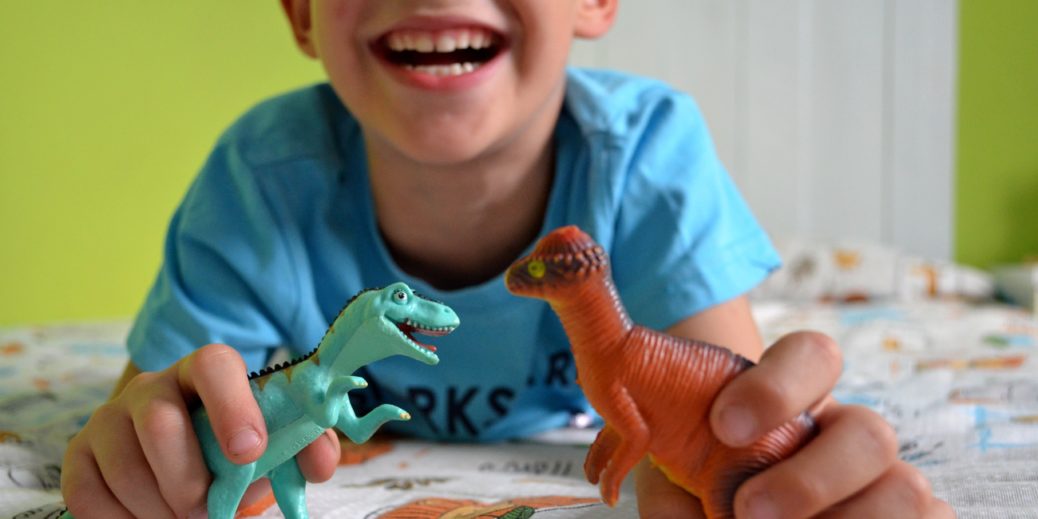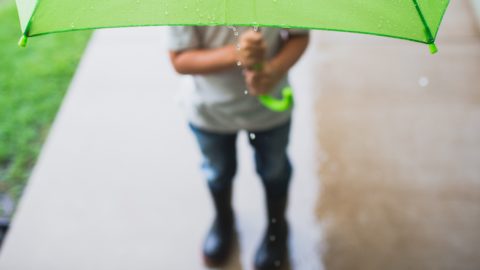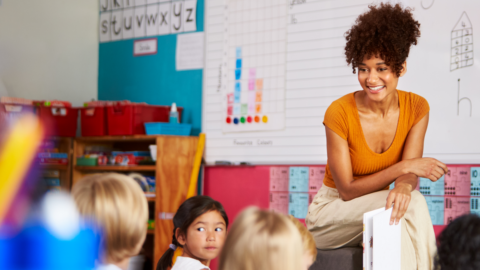*Originally published on Becker’s Insights on Early Learning blog.
“Play is the highest form of research.” ~Albert Einstein
Since the start of my career as an early childhood educator, I’ve always advocated for play. It’s no secret in our profession that students learn and develop best when engaging in child-led, play-based learning.
It wasn’t until I became a parent (to a now toddler) that I could fully comprehend how children progress through the various stages of social play. And, seeing it all play out (pun intended) has been simply fascinating!
At my husband’s softball game the other day, I observed my son and another little girl belly laughing while mimicking each other’s stomping patterns on the aluminum bleachers. My husband shot me a glance from the dugout because it was loud, but I was too in awe of their “associative play” to stop it.
According to Mildred Parten*, there are six stages of social play with the first beginning at birth. It’s important to note that children will grapple with these stages at various rates and move back and forth between them also. The best thing we as educators, parents, and caregivers can do is provide early learners with time and space to explore their environment and interact with peers.
So, here’s a quick glimpse at what each social stage entails as well as tips for helping our little learners progress:
Stage 1: Unoccupied Play (Birth-3 Months)
During this initial stage of play, babies make movements and gestures with no real objective. While it may not seem like they’re doing much, they’re actually discovering how their body works and gathering knowledge of their surroundings. They simply need safe, comfortable places to wiggle about.
Stage 2: Solitary Play (Birth-2 Years)
Babies/toddlers think, explore, and create independently during this stage of play. They may become so engrossed in play that they do not notice the actions of those around them, and that’s OK! They are not being “anti-social.” Instead, they’re learning/practicing the foundational physical and mental skills needed to play with others. Give them plenty of items/toys to explore and manipulate.
Stage 3: Onlooker Play (2 Years)
During onlooker play, toddlers intently watch other children engaged in play but do not join them. Observing peers helps them discover the rules of play as well as how to relate with others. Take them to highly active environments such as playgrounds or story times at the library so they can observe peers, and when ready, join in the fun!
Stage 4: Parallel Play (2+ Years)
This stage occurs when children play side-by-side without engaging in social exchange. They may be performing similar activities in similar ways, yet they prefer to play alone. Parallel play helps children practice skills at their own pace. An example of this may be two children playing but not closely interacting in a sandbox. Keep them in close proximity to each other, and they’ll likely start mimicking each other’s movements.
Stage 5: Associative Play (3-4 Years)
During associative play, children become more interested in each other. They do not yet have the skills to organize/coordinate efforts but will discover simple ways to play together. Imagine two kids on trikes chasing each other around. Model cooperative activities such as taking turns during this stage.
Stage 6: Cooperative Play (4+ years)
This stage of play is categorized by cooperative efforts between players. Children communicate their wants and needs. They learn to share, take turns, obey rules, and negotiate. Oftentimes, leaders and followers emerge, and children may require support from adults with problem-solving. Give them some costumes/props and the freedom to engage in pretend play with peers!
Remember, play is powerful, and reflecting upon Parten’s stages helps us grow and develop critical social skills in early learners.
Where do your students or children fall on this continuum?
*Parten, M. B. (1932). Social participation among pre-school children. The Journal of Abnormal and Social Psychology, 27(3), 243-269.









